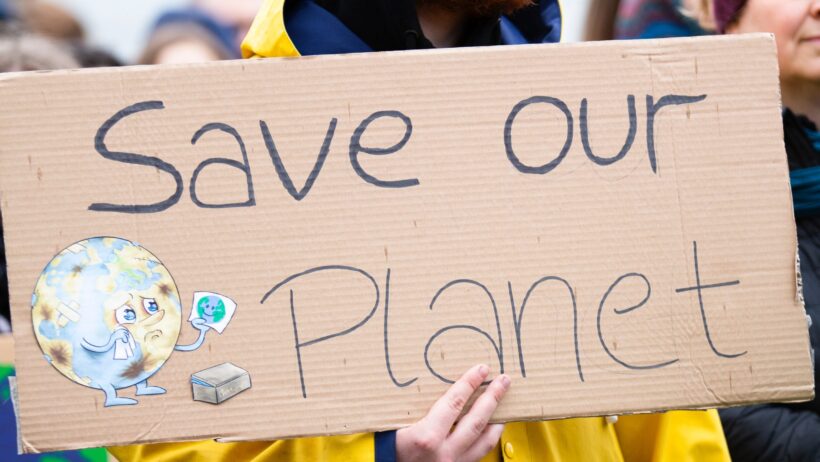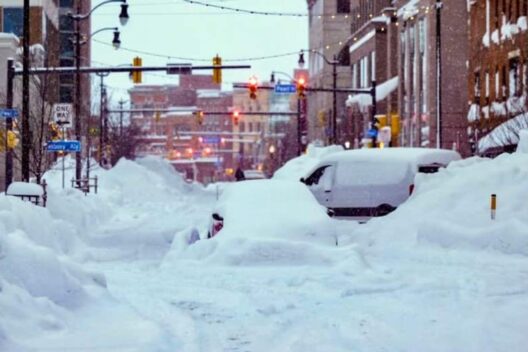Global warming has transitioned from a mere scientific concern to a topic that captivates public discourse, regulatory agendas, and even the arts. But amidst this widening conversation, a pivotal question arises: does anyone actually care about global warming? The answer is multifaceted, reflecting a tapestry of personal beliefs, political divides, cultural influences, and economic interests. This exploration delves into various facets of this pressing issue.
First and foremost, it is essential to examine the emotional response people have towards climate change. The effects of global warming are already palpable; rising sea levels, unprecedented wildfires, and erratic weather patterns serve as tangible manifestations of this phenomenon. Reports suggest that younger generations possess a heightened awareness of ecological issues, partially driven by educational initiatives and rampant social media engagement. Their fervor—often described as climate anxiety—illustrates a profound concern for the planet’s future. However, this emotional response varies significantly across demographics. Older generations may regard climate change with skepticism, influenced by long-standing economic reliance on fossil fuels and a belief that technological innovations can mitigate consequences without drastic lifestyle changes.
Furthermore, the political landscape heavily influences public sentiment regarding global warming. In many countries, environmental policies are hotly contested, often falling along partisan lines. Political leaders who acknowledge and act on climate change tend to mobilize pro-environmental sentiments, garnering support from constituents who prioritize sustainability. Conversely, those who deny or downplay its urgency may foster complacency among their followers. This politicization generates a dichotomy: activists rally for immediate action, while certain political factions argue against the existence of the crisis. Such divisions complicate the discourse, leading to an uninformed public that is unsure what to believe. In essence, political allegiance significantly shapes whether individuals care—and, indeed, act—towards combating climate change.
The role of media cannot be understated in shaping public perception about global warming. Increasingly, documentaries, podcasts, and articles spotlight environmental issues, using storytelling to invoke empathy and awareness. Platforms like Netflix have produced acclaimed documentaries—effectively bridging the gap between entertainment and activism. These narratives bring urgency to the issues at hand, illustrating the human stories behind ecological statistics. However, the media landscape is also littered with misinformation; sensationalism can trivialize the gravity of the situation, leading audiences to feel overwhelmed or even apathetic. This creates an obfuscation that can turn genuine concern into desensitization, ultimately affecting individuals’ capacity to act.
Moreover, the intersection between economics and climate care is critical. Many individuals express concern over environmental degradation yet prioritize immediate economic benefits. Industries reliant on fossil fuels, such as oil and coal, employ vast numbers of people, creating a situation where economic security is at odds with environmental sustainability. This conflict fosters an environment where caring about global warming can feel secondary to job preservation. Workers in these sectors often resist shifts towards green technologies, fearing unemployment or economic downturn. The crux of the matter lies in finding a sustainable path forward that integrates ecological responsibility with economic opportunity. Green job creation, renewable energy investment, and sustainable business practices can all contribute to this shift, encouraging people to care more about global warming by offering pathways for involvement.
In addition, a significant factor influencing concern for climate change is cultural background. Different cultures approach environmental issues through varying lenses, shaped by historical contexts and societal values. Indigenous peoples, for example, often possess a deeply ingrained relationship with the earth, viewing climate change as not merely an environmental crisis, but a spiritual and communal challenge. In contrast, industrialized nations may struggle with a disconnected consumer-driven culture that prioritizes convenience over ecological considerations. By cultivating a more symbiotic relationship with nature across cultures, global solidarity towards combating climate change can emerge, increasing collective care.
The technological landscape also plays a role in how individuals engage with the topic of global warming. Innovations in renewable energy, electric vehicles, and sustainable agriculture are reshaping how we interact with our environment. As these technologies become more accessible, a growing number of people are recognizing the tangible benefits of adopting environmentally wary practices. Young entrepreneurs and innovators are leading the charge towards a greener economy, raising awareness and attracting investment into sustainable ventures. This burgeoning sector showcases that caring about climate change does not always necessitate sacrificial living; rather, it can lead to innovative solutions and lucrative opportunities.
Lastly, community engagement is crucial in fostering a culture of awareness and action concerning global warming. Grassroots movements, local organizations, and community initiatives enable individuals to connect over common concerns and collaborate towards impactful solutions. Such engagement fosters a sense of belonging and urgency; when communities work together, caring for the environment can transform from an abstract concern into a local responsibility. Initiatives like urban gardening, local clean-ups, and climate literacy programs galvanize collective action, ensuring that the crisis remains at the forefront of local agendas.
In conclusion, the question of whether anyone actually cares about global warming is complex, influenced by a multitude of factors including emotion, politics, media, economics, culture, technology, and community. While many individuals are deeply concerned and motivated to act, others remain disengaged or resistant. Therefore, fostering a holistic understanding of these dynamics is essential in cultivating a collective ethos that prioritizes environmental responsibility. It is incumbent upon each of us—regardless of our backgrounds or beliefs—to confront this existential challenge with the seriousness and urgency it deserves. The future of our planet relies on it.







